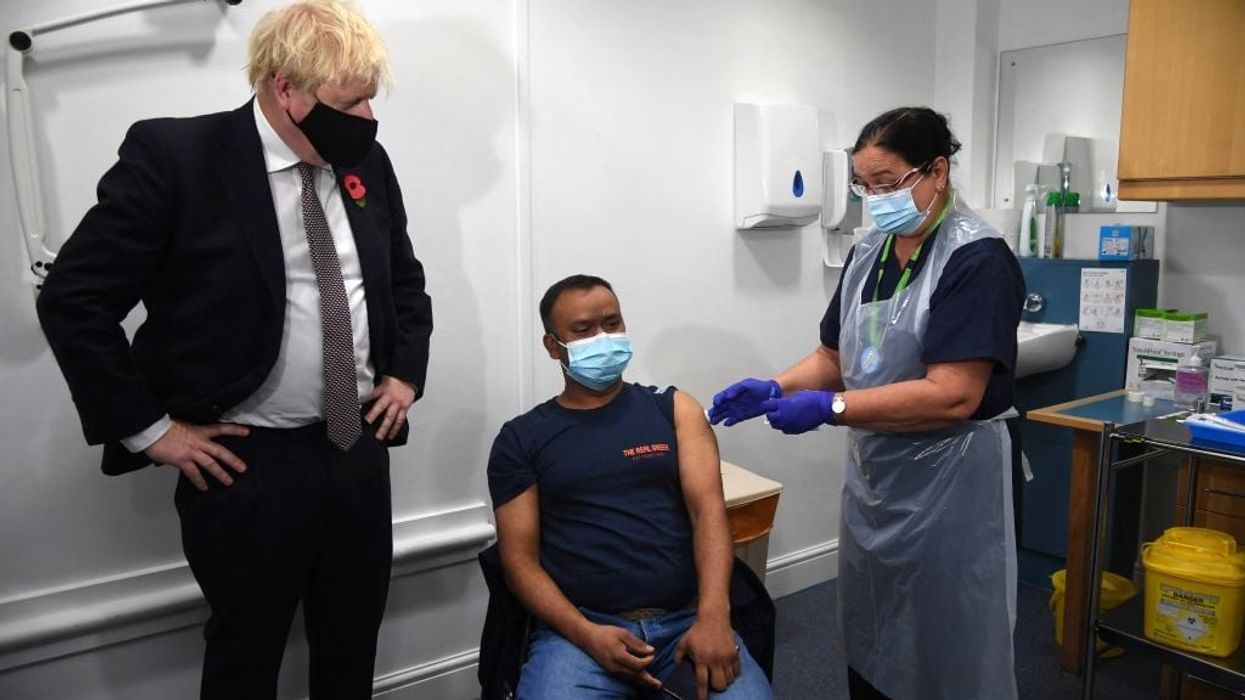THE government has urged people to get Covid-19 booster vaccines ahead of Christmas as the National Booking service will open on Monday (22) to people aged 40-49 for their booster jab, and people aged 16-17 for their second jab, a statement said.
People can book by calling 119 or get vaccinated at hundreds of walk-in sites across the country six months after their second dose without an appointment. Those eligible can use the NHS online walk-in finder to locate the most convenient site.
The first real-world study on the effectiveness of booster vaccines by the UK health security agency has revealed that two weeks after receiving a booster dose, protection against symptomatic infection in adults aged 50 years and over was 93.1 per cent in those with Oxford/AstraZeneca as their primary course and 94.0 per cent for Pfizer-BioNTech.
Those eligible for a booster can book an appointment in advance - five months after their second dose - to be vaccinated as soon as they reach the six-month mark.
Almost 6 in 10 young people aged 16 to 17 have already had the first dose in England. Second doses will top-up this protection even further during the winter months, the statement added.
“Getting your Covid-19 booster vaccine is the best way to keep yourself and your loved ones safe this winter and will help reduce the pressure on the NHS. While the government is continuing to monitor a wide range of data to ensure the country remains protected, we have very sadly seen a surge in cases in parts of Europe," said health secretary Sajid Javid.
“The most important thing we can do to stop a similar rise in this country is get the jab – so please get your vaccines as soon as you can so we can keep the virus at bay.”
A total of 14 million people in the UK have already received their booster vaccines, and more than 50 million first doses (88.2 per cent) and 46 million second doses (80.2 per cent) have been given across the UK.
Vaccines minister Maggie Throup said: “We must protect the gains we have made through our vaccination programme this winter, and I urge everybody to help make this happen.
“Please get your boosters when eligible, and get your first and second doses if you haven’t already, to secure vital protection during the winter to keep you and your loved ones safe.”
The latest evidence from the scientific advisory group for emergencies (SAGE) shows that protection against symptomatic disease falls from 65 per cent, up to three months after the second dose, to 45 per cent six months after the second dose for the Oxford/AstraZeneca vaccine, and from 90 per cent to 65 per cent for the Pfizer/BioNTech vaccine. Besides, protection against hospitalisation falls from 95 per cent to 75 per cent for Oxford/AstraZeneca and 99 per cent to 90 per cent for Pfizer/BioNTech.
According to the statement, Covid-19 booster vaccines have been delivered or booked in at every older adult care home in England where safe to do so, with almost 9 in 10 care homes already visited.
“The NHS vaccination programme continues to roll out at scale with more than 12 million boosters delivered in England - including around seven in 10 eligible people aged 50 and over - and 14 million UK wide in nine weeks," said Dr Emily Lawson, head of the NHS Covid-19 vaccination programme.
“In the run-up to the festive period and what we know will be a challenging winter, I would encourage everyone who is eligible and invited to take up the offer of a life-saving booster as soon as possible to protect yourself and those around you.”
Those eligible for a free flu vaccine should come forward and book an appointment at either their GP or their local pharmacy, or take it up when offered by their employer or another healthcare provider, the statement further said.
There were only 1,697 vaccination centres in operation in April 2021, which has now increased to over 2,200. Vaccines are also available for those aged 12 to 15.





